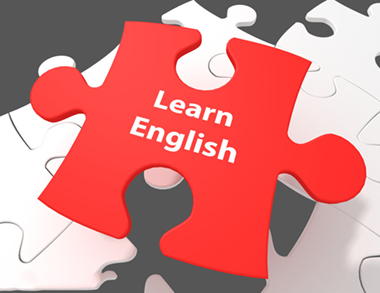1
6.有无冠词,意思有别
例 Can you finish the book in a month or two?
a.Yes,it's out of________quetion.
b.No,it's out of_____question.
A.the,the B.×,×
C.the,× D.×,the
此题应选D 。比较:
1)out of question 没问题(=without question)
2)out of the question 根本不可能(=impossible)仅差一个冠词,意思几乎相反。比较以下类似句:
1)a.Three months after her marriage,she was with child.婚后三个月她就怀孕了。
b.She came to see me with a child.
她带着一个小孩来看我。
2)a.Great changes have taken place here since 1978.
1978年以来,这里发生了巨大的变化。
b.Now plastics have taken the place of many materials.现在塑料已代替了许多材料。
3)a.Mr Smith is in charge of our class.
史密斯先生管理我们班。
b.Our class is in the charge of Mr Smith.
我们班由史密斯先生管理。
4)a.The old woman is in possession of a large fortune.这个老太婆拥有大宗财产。
b.Large fortune is in the possession of the old woman.大宗财产掌握在这个老太婆手里。
17.用冠词,表示具体实体:不用冠词,表示相关活动
例 a.I saw ten people seated around _____table.
b.It's bad manners to blow your nose at _____table.
A.a,a B.×,× C.a,× D.the,a
此题选C 。第一空填不定冠词(当然若是特指也可用定冠词),这是把table 当作一个具体的“实体”来看待;第二空不用冠词,因为这里的table 已不是一个具体的“实体”,而是指与桌子有关的一项“活动”——吃饭。英语中有很多这样的情况:当一个名词表示一个具体的“实体”(如具体的场所、具体的建筑物等)时,它可以与冠词连用;但当它不是表示一个具体的实体而是表示与之相关的一项活动时,则通常不用冠同。
现举例如下:
1)go to school 去上学(读书)
go to a [ the] school 到学校去(不是读书)
2)go to bed 上床睡觉
go to a[ the] bed 到床边去(不是睡觉)
3)in prison 坐牢
in a [ the] prison 在监狱里(不是坐牢)
4)go to sea 当海员,做水手,出海
go to the sea 到海边去(不是当水手等)以上情况还可以有其它结构:at school 在校读书/at church 在做礼拜/be in bed 在睡觉/be sent to prison 被关进牢房等等。但是以下用法属例外(其中的冠词不能少):go to the cinema 去看电影/go to the office 去办公室上班等。
18.乐器名词前一定要加定冠词吗
例 He loves playing _______piano,but he hasn't got ______piano of his own.
A.the,the B.the,a C.a,the D.a,a
此题应选B 。容易误选A 。有不少考生认为乐器名词前一定要用定冠词。如:
She plays the piano very well.她钢琴弹得好。
She studies the piano under Mr Smith.她在史密斯先生的指导下学习钢琴。
He practised(on)the piano every day.他每天练习钢琴。
以上各句均正确,并且其前的定冠词通常不能省略(因为其中的piano 指的不是钢琴这个实体,而是指钢琴演奏、钢琴理论、钢琴技巧等抽象意义)。但是以下各例则没有用定冠词(因为其中的piano 指的是钢琴这个实体):
He has two pianos.他有两部钢琴。
He bought a piano for her.他给她买了部钢琴。
注意,球类运动名词也有类似特点:
1)表示球类活动时,不用冠词(也不用复数):
He plays basketball every day.他每天打篮球。
He is good at volleyball.他排球打得好。
2)表示球类实体时,可用冠词(也可用复数):
Did you see a football in the classroom this morning?
今天早上你在教室里看见足球了吗?
There are some basketballs in the comer.
角落里有几个篮球。
19.物质名词和抽象名词前何时用或不用冠词
例 The teacher said______snow is white,but_____snow on the road is red.Why?
A.the,the B.×,×
C.the,× D.×,the
此题应选D,容易误选B,误认为:snow 是物质名词,其前永远不用冠词。 在通常情况下,物质名词和抽象名词在表示一般概念(即泛指)时,不用冠词(即使有描绘性定语修饰也不用冠词)。但是如果物质名词和抽象名词不是表示一般概念,而是表示某一特定内容(尤其是有限定性定语修饰)时,或当它们表示“一种”、“一场”、“一份”等意思时,则可以加冠词。试做以下试题:
1)I like to eat_______fish,but____fish I ate last night ma be me sick.
A.the,the B.×,× C.the,× D.×,the
2)______air is necessary to life,but______air around here is not fresh.
A.the,the B.×,× C.the,× D.×,the
3)A:Do you like to listen to_____music?
B:It all depends.In fact only like_____music by Mozart.
A.the,the B.×,× C.the,× D.×,the
4)A:He has no sense of _______humour.
B:No,you didn't catch _____humour in his remark.
A.the,the B.×,×
C.the,× D.×,the
答案:1.D 2.D 3.D 4.D
20.你知道“the+形容词”的用法吗
例 a.The wounded____ to the hospital.
b.The beautiful ____ for ever.
A.was,lives B.were,live
C.was,live D.were ,lives
此题应选 D,主要考察“the+形容词”结构。用法注意:
1)表示性质或特征相同的人,具有复数意义:
The rich are not always happier than the poor.富人并不一定总比穷人幸福。类例:
the deaf 聋人 the dead 死者 the blind 盲人the young 年轻人 the weak 弱者 the old 老人 the strong 强者 the sick 病人 the wounded 伤员
the killed 被杀者 the injured 受伤者 the living 活着的人 the unemployed 失业者 the oppressed 被压迫者
the oppressing压迫者
2)指抽象概念,表示单数意义:
The true always triumphs.真理永远获胜。类例:
the good 善良 the right 正义 the true 真实
the bad 坏事 the humorous 幽默感有时可能根据其含义的不同,用法也会有所变化。如the good 既可表示抽象意义(=what is good),具有单数意义,也可表示人的类别(=those who are good),具有复数意义。又如以下两例中的the old:
The old are respected in our country.
在我国老年人受到尊重。
The new is sure to replace the old.
新的东西肯定会代替旧的东西。





